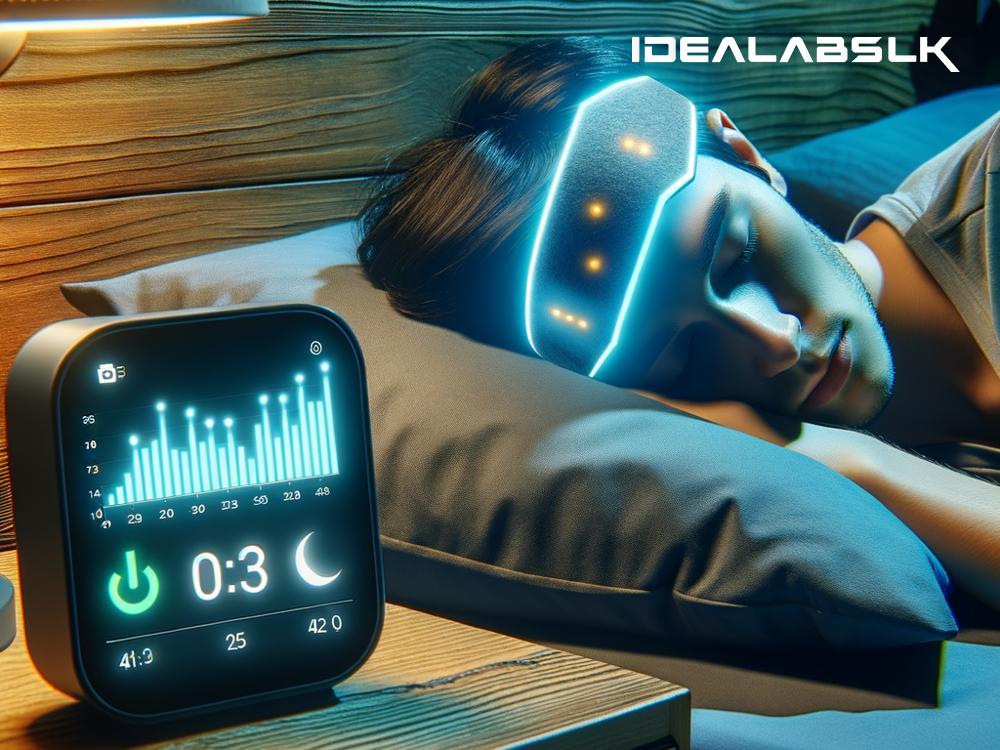The Marvels of AI in Advanced Sleep Monitoring Gadgets
In the hustle and bustle of today's world, a good night's sleep has become a rare treasure. Thankfully, technology has kept pace with our needs, introducing advanced sleep monitoring gadgets powered by Artificial Intelligence (AI) that promise to transform our slumber experience. But, how does AI work its magic in these gadgets? Let’s dive into the fascinating world of AI and its role in monitoring and enhancing our sleep, all explained in the simplest of terms.
The Basics of Sleep Monitoring
Before AI stepped into the picture, sleep monitoring was mostly done in sleep labs, with subjects connected to numerous wires and devices. It was accurate but far from convenient. Enter wearables and bed-based sensors; while they made monitoring easier and more accessible, analyzing the mammoth data they collected was another challenge. That's where AI comes in.
AI: The Brain Behind the Operation
AI, at its core, is about teaching machines to learn from data and make decisions or predictions based on that learning. When applied to sleep monitoring gadgets, AI algorithms tirelessly work to make sense of the data collected, such as your breathing rate, heart rate, movements, and more, to provide insights into your sleep patterns.
How AI Works in Sleep Tracking
-
Data Collection: The first step is collecting data, and this is where the gadgets come into play. Using a variety of sensors, these devices keep track of everything from your heartbeat to your tossing and turning throughout the night.
-
Pattern Recognition: Once the data is collected, AI algorithms start the heavy lifting. They sift through the information to identify patterns. For instance, they can differentiate between light sleep, deep sleep, and REM (Rapid Eye Movement) sleep by analyzing your heart rate variability and movements.
-
Personalized Insights: The real beauty of AI in sleep monitoring lies in its ability to tailor insights specifically for you. By continuously learning from your nightly data, AI can pinpoint what disrupts your sleep or suggest the best times for you to hit the hay based on your sleep cycles.
-
Recommendations and Adjustments: Some advanced gadgets go a step further by not just monitoring but also enhancing your sleep. For example, smart beds can adjust their firmness based on the AI’s analysis of your sleep positions, reducing your chances of waking up. Similarly, some wearables can gently vibrate to nudge you out of a deep sleep phase, making waking up less groggy.
The Benefits of AI-Enhanced Sleep Monitoring
- Personalization: Every sleeper is unique, and AI understands this. By analyzing your specific patterns, it offers insights and recommendations tailored just for you, making it a profoundly personal health tool.
- Proactive Health Management: Beyond improving sleep, monitoring can reveal underlying health issues, such as sleep apnea or irregular heart rhythms. Early detection can lead to early intervention.
- Ease of Use: With the hard work done by AI, all you need to do is wear a device or sleep on a sensor-equipped mattress. The gadgets and AI do the rest, making it incredibly user-friendly.
Challenges and Considerations
While the prospects of AI in sleep monitoring are exciting, there are challenges, like privacy concerns surrounding the data collected and ensuring these devices are accessible to everyone. Plus, it's important to remember that while AI can provide remarkable insights, it's not a substitute for professional medical advice if you have serious sleep issues.
The Future of Sleep Technology
As AI technology evolves, we can expect sleep monitoring gadgets to become even more sophisticated. From devices that can seamlessly integrate with our home environment to adjust lighting and temperature, to wearables that offer real-time advice to improve our sleep quality, the possibilities are endless.
Wrapping It Up
The integration of AI into sleep monitoring gadgets has revolutionized how we understand and approach our sleep. By providing personalized insights and actionable recommendations, these gadgets are not just tools but partners in our quest for better sleep. As we continue to navigate the complexities of modern life, one thing is clear: AI-enhanced sleep technology will play a pivotal role in helping us achieve the restorative sleep we all deserve.
In the end, as we embrace these technological marvels, it's essential to approach them as aids, not replacements, to natural sleep practices and medical advice. Here’s to sleeping smarter, not harder, in the AI age!

